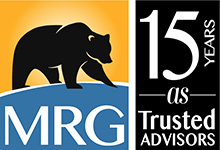Addressing Complaints of Workplace Misconduct — A Critical Test for Leaders
Fred has over 30 years of Law Enforcement experience and served as the Police Chief and Interim City Manager for the City of Hercules, California. He has extensive experience in police personnel issues including recruitment, evaluation, discipline and termination. Earlier, Fred was with the Benicia Police Department for almost 18 years. He holds a Juris Doctor Degree from John F. Kennedy University College of Law and is a member of the California Bar Association, and graduated from California State University at Hayward with a Bachelor’s Degree in History. Fred also attended the FBI National Academy and graduated with the 193rd Session.
Workplace Misconduct
Receiving and resolving personnel complaints are an integral part of what it means to be a manager and an effective leader. How well a manager addresses, or fails to address, complaints of workplace misconduct can have a profound effect on the manager’s future success…or failure.
Once managers become aware of inappropriate workplace activity, they have a duty to act. In most instances, some kind of inquiry is necessary to determine whether the allegations are true and, if so, whether the conduct violated the employer’s policies. Sound management decisions can often make the difference between strengthening and improving your workplace or making the situation worse.
The Complaint Intake Process:
Does your agency policy identify how complaints are filed and who receives them? Some agencies require complainants to complete a form. This may be helpful to the intake process. It creates confusion when misconduct is reported without submission of a supporting written complaint. Managers and supervisors frequently learn of alleged misconduct through rumors or other informal communications. The absence of a written complaint does not relieve the agency of their need to inquire further in such cases.
The complainant’s supervisor or a Human Resources analyst may conduct intake interviews, which are designed to gain information necessary to determine the nature and severity of the alleged misconduct. This should not be a comprehensive interview of the complainant; too detailed an interview can result in disparities between the intake interview and subsequent testimony. Long initial interviews also have the potential of turning the intake interviewer into a witness in any subsequent investigation. If necessary, the scope of the investigation can always be adjusted after the formal investigative interview of the complainant.
The intake process should provide sufficient information for the employer to determine whether a formal investigation is required and, if so, whether an outside investigator is appropriate. A well-executed intake procedure also assures the complainant that their allegations will be handled appropriately by the agency. It can also enhance a perception of professional accountability within the agency. Don’t miss these opportunities.
Choosing an Investigator:
Various factors should be considered when deciding who should investigate allegations of workplace misconduct. Larger agencies are more likely to have trained and capable investigators, who have not had much interaction with the witnesses and the suspected responsible employee. Smaller agencies do not enjoy this advantage, however, and costs associated with hiring an outside investigator are not as easily borne by these employers.
The seriousness of the allegations also weighs heavily in the selection process. When I was a police chief, we always hired an outside investigator in cases where the alleged misconduct, if sustained, could result in termination. Many government agencies hire independent investigators if a department head or elected official are accused of wrongdoing. The past disciplinary history of the subject employee should also be evaluated as part of this decision. Subjects who have received habitual complaints may warrant an outside professional investigator, even for seemingly minor allegations of misconduct. It is also impractical to expect an independent investigation from an in-house employee looking into alleged misconduct by high-ranking or elected officials.
When making this decision, the agency should stay focused on the end goal of having an independent, professional and defensible final product. Your investigator’s report is the first step in avoiding litigation, or prevailing if litigation is unavoidable. Few outcomes are worse than having to move forward with a defective investigative report.
Getting the Most Out of Your Investigator:
Employers who engage an outside investigator foster success by establishing clear guidelines and mutually beneficial working relationships. Identifying a single agency liaison to assist the investigator promotes accountability and eliminates confusion. The best investigations result from collaborative relationships between the employing agency liaison and the investigator. A projected completion date for the investigation should be discussed and determined, with the understanding that the scope may change the timeline as additional evidence is gathered. Employer liaisons are also helpful for providing the outside investigator with appropriate cultural or other workplace history relating to the matters being reviewed.
The Aftermath:
Great leaders always begin any engagement with a fair and judicious conclusion in mind. Before undertaking any serious disciplinary investigation, consider what outcome is best for the agency and employee, and whether or not the desired outcome is realistically attainable. Understand the difference between poor performance and alleged violations of policy. Consider all options, remembering Sun Tzu’s advice:
The supreme art of war is to subdue the enemy without fighting.
Profile
Learn more about Fred by visiting his
profile.
